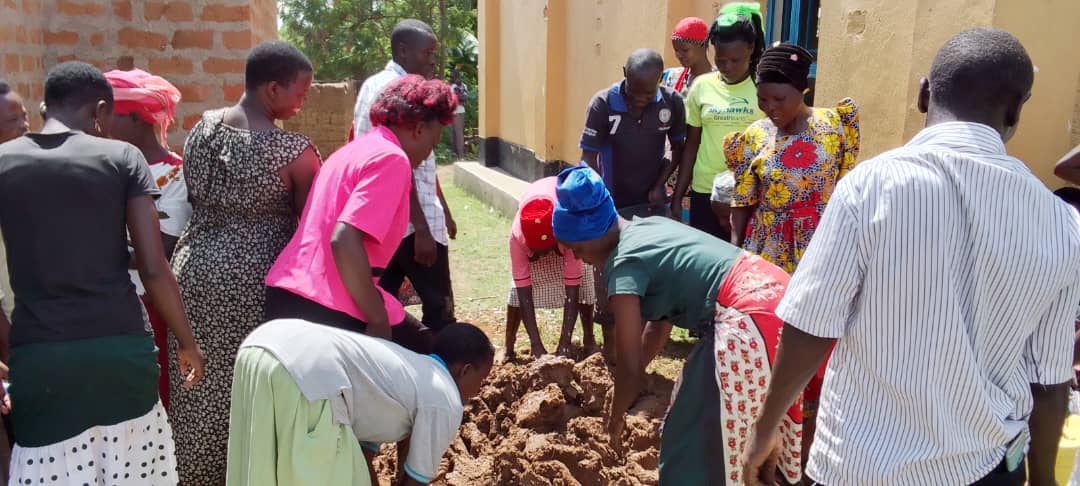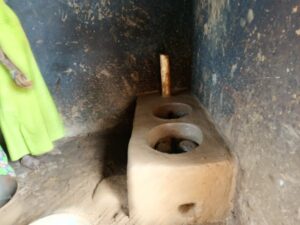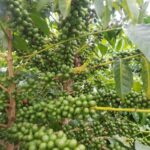‘Clean Cookstove Initiative’ Provides Income-Generating Opportunity for Women in Lwakhakha Sub Catchment

Article drafted by Kikundwa Anne & Lukwago Brian
In Lwakhakha, Uganda, women are the primary users of cookstoves, often bearing the responsibility of securing cooking fuel like wood and charcoal to prepare meals for the family. Most of the households in the Lwakhakha sub-region rely on traditional cookstoves that burn wood and charcoal. However, these fuels are inefficient, costly, and unhealthy. Traditional cooking emits carbon monoxide and other toxic fumes that are harmful to human health, leading to many deaths each year.
Women take time away every day from education or income-generating activities to collect cooking fuel. This daily task takes many hours traveling long distances alone and by foot, which puts the women at an increased risk of gender-based violence. They then use this fuel to cook in poorly ventilated kitchens, exposing them to household air pollution that kills nearly four million people annually and causes cancer, pneumonia, heart and lung disease, and blindness. In the rural areas of the Lwakhakha sub-catchment in the Eastern region of Uganda, like in many parts of the world, women are exposed to indoor air pollution from inefficient firewood cookstoves. Furthermore, inefficient cookstoves can be unsafe, causing household fires and burns.
In light of these negative consequences of the traditional cookstoves, the Ministry of Water and Environment through AidEnvironment as a partner, launched an income-generating initiative where rural women are trained as stove builders who further train other women in building and maintaining clean stoves. Women who complete the training will be given molds to build stoves in other households – an activity that will help them to earn a living.
We envisage that engaging women to popularise the stoves will be successful since they can communicate and better relate to other women. Apart from earning an income, the training of other women will enhance their levels of confidence as they step out of their homes to attend and impart knowledge on others.
Our solution to some of the challenges presented is to make improved cookstoves affordable and accessible to communities in Lwakhakha. These locally produced, improved cook stoves use up to 50% less charcoal, cook food faster, and can save households over $100 per year. By using less charcoal for cooking, these stoves put less strain on the environment with fewer trees needing to be cut down and less greenhouse gas emissions. Not only will these improved stoves reduce the health and safety issues caused by household air pollution, these will also lessen the time women spend collecting cooking fuel. Women can then reallocate this time to educational, income-generating, and leisure activities.
Increased opportunities for women in owning or being employed by cookstove-related businesses — like restaurants, catering, and cookstove production and distribution will increase income generation, empowering them financially and giving them greater household decision-making power, especially towards participation in activities geared towards restoration of the environment.




